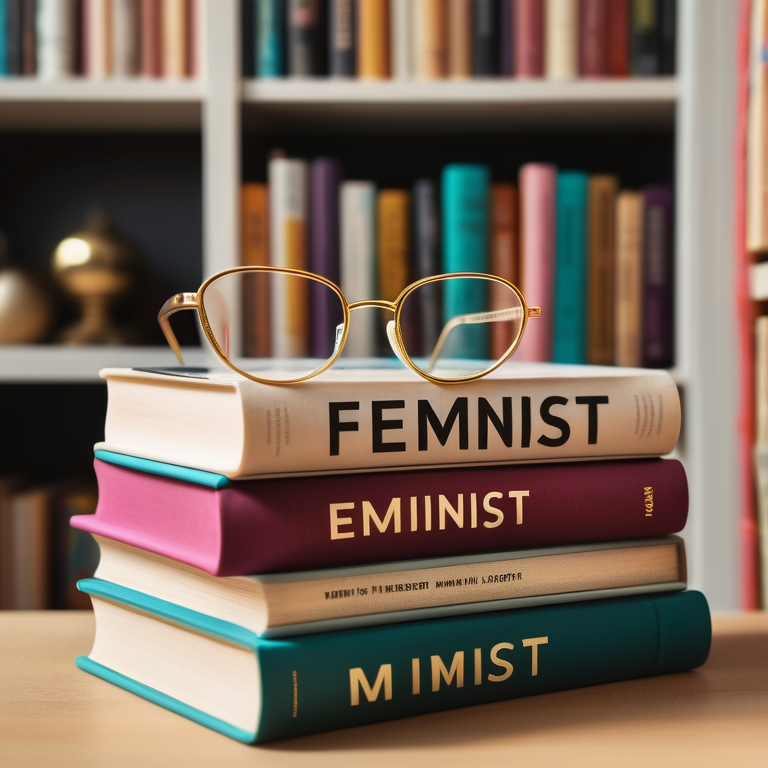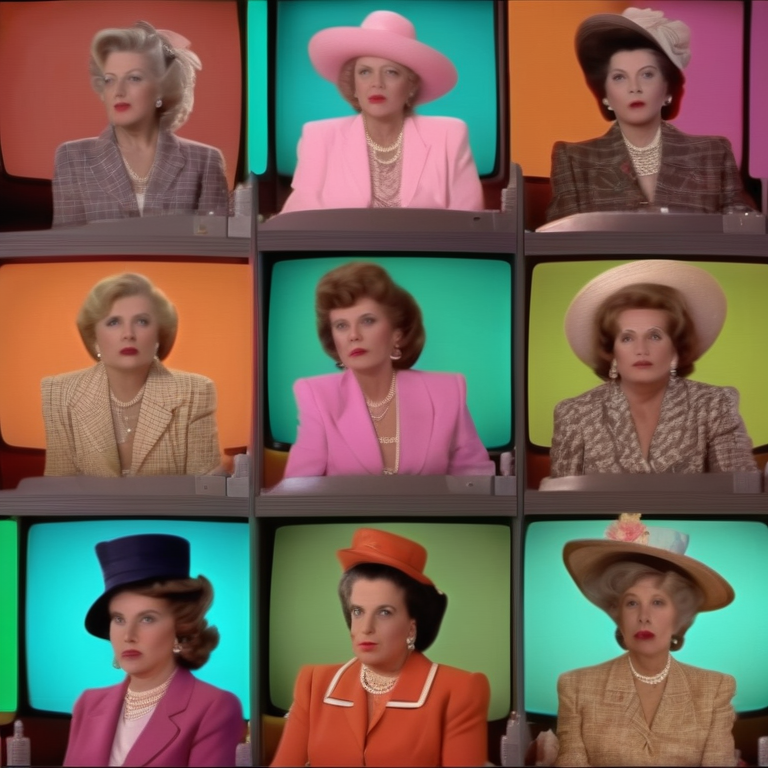17 Essential Reads Feminist Literature on Women’s Sexuality

Key Highlights
Key Highlights:
- Explore a curated list of 17 must-read feminist literature focusing on women’s sexuality.
- Gain insights into the diverse perspectives and experiences of women through these empowering literary works.
- Delve into thought-provoking discussions on gender, sexuality, and empowerment in various cultural contexts.
- Discover how these books challenge societal norms and stereotypes surrounding women’s sexual autonomy.
- Enhance your understanding of feminist theory and its intersection with women’s sexuality through these impactful reads.
Introduction
Exploring the rich tapestry of feminist literature on women’s sexuality unveils a profound journey of empowerment, critique, and liberation. These works serve as guiding beacons in understanding the complex interplay of gender, sexuality, and societal structures. From iconic pieces like “The Second Sex” by Simone de Beauvoir to contemporary revelations in “Hood Feminism: Notes from the Women That a Movement Forgot” by Mikki Kendall, and “My Life on the Road” by Gloria Steinem, each book offers a unique perspective on the challenges and triumphs faced by women, including the issue of sexual violence. Delving into these texts not only broadens our understanding of women’s sexuality but also invites introspection on our own roles in perpetuating or challenging societal norms. Join us on this literary voyage as we navigate through the pages penned by some of the most influential voices in feminist discourse, igniting conversations that redefine our perceptions of sexual attraction, sexuality, and identity, and ultimately transforming our sex lives.
17 Must-Read Feminist Literature on Women’s Sexuality
Simone de Beauvoir’s “The Second Sex” challenges traditional views on femininity, while Betty Friedan’s “The Feminine Mystique” delves into the discontent of suburban housewives, igniting second-wave feminism. Audre Lorde’s “Sister Outsider” gives voice to women of color, echoing the importance of intersectional feminism. Judith Butler’s “Gender Trouble” critiques gender norms, advocating for fluid identities. Naomi Wolf’s “The Beauty Myth” uncovers the societal pressures on women’s bodies, linking to Inga Muscio’s empowering “Cunt: A Declaration of Independence.” Roxane Gay’s “Bad Feminist” embraces imperfections, promoting inclusivity in feminist discourse. These works, along with others like “Hood Feminism” by Mikki Kendall, “The Body Is Not an Apology” by Sonya Renee Taylor, and “We Should All Be Feminists” by Chimamanda Ngozi Adichie, adapted from her TEDx talk on the same topic, elucidate the complexities of women’s sexuality and its intersections with power, identity, and society, making them essential reads in understanding the evolving landscape of feminist literature by some of the most distinctive voices in the movement.
1. The Second Sex by Simone de Beauvoir
Simone de Beauvoir’s “The Second Sex” is a seminal work in feminist literature, exploring the complexities of women’s experiences and the construction of gender roles. Published in 1949, this groundbreaking piece delves into the social and cultural factors that shape women’s identities and roles in society. De Beauvoir’s analysis of women’s oppression and the concept of “otherness” has been instrumental in shaping feminist theory and discourse. Her work challenges traditional notions of femininity and questions the inherent power dynamics within relationships. By delving into the nuances of women’s sexuality and societal expectations, de Beauvoir offers a profound critique of patriarchal structures. “The Second Sex” remains a timeless piece that continues to inspire critical thinking on gender and feminism, alongside other essential works such as Virginia Woolf’s “A Room of One’s Own.”
2. The Feminine Mystique by Betty Friedan
Betty Friedan’s The Feminine Mystique is a pivotal work in feminist literature, shedding light on the struggles of women battling societal norms. Friedan eloquently dissects the notion of women’s primary role as homemakers, deconstructing the myth of universal female fulfillment through domesticity. Her exploration delves deep into the psychological impact of subjugation within the confines of traditional gender roles, igniting a conversation that reverberated across the feminist landscape. By challenging the status quo, Friedan paved the way for modern discussions on female agency and empowerment, urging women to envision lives beyond the constraints imposed by a patriarchal society. Her work continues to inspire generations of individuals to question and dismantle the structures that confine women to limited roles, making The Feminine Mystique an enduring cornerstone of feminist thought.
3. Sexual Politics by Kate Millett
In “Sexual Politics” by Kate Millett, groundbreaking ideas on feminist theory and sexual relations are eloquently explored. Millett delves into the complexities of power dynamics, addressing issues of sexism and oppression prevalent in society. Through a critical lens, she analyzes the intersection of gender and sexuality, shedding light on the long way women have come in the fight for equality. Millett’s work stands as a testament to the feminist movement, challenging norms and advocating for women’s liberation.
Her profound insights, influenced by thinkers like Simone de Beauvoir and Judith Butler, offer a unique perspective on issues such as sexual orientation and reproductive rights. Millett’s exploration of sexual politics and healthcare remains relevant today, sparking important conversations on the rights of women and the need for inclusivity in feminist discourse. Her work continues to inspire and educate, making “Sexual Politics” a foundational piece in feminist literature on women’s sexuality.
4. Sister Outsider by Audre Lorde
Audre Lorde’s “Sister Outsider” is a seminal work in feminist literature, delving into the intersectionality of race, gender, and sexuality with unparalleled depth. Lorde, a pioneering voice on issues of social justice, offers a powerful critique of traditional feminist movements that often overlook the experiences of women of color. Through insightful essays and speeches, she challenges the status quo and advocates for a more inclusive and compassionate society. Lorde’s reflections on topics such as identity, difference, and power dynamics resonate strongly with readers seeking a deeper understanding of oppression and liberation. “Sister Outsider” is a must-read for anyone interested in exploring the complexities of feminist thought and the importance of embracing diverse perspectives in the fight for equality and justice.
5. Gender Trouble by Judith Butler
Judith Butler’s “Gender Trouble” is a pivotal work in feminist literature, exploring the complex interplay between gender, identity, and societal norms. Butler delves into the concept of gender performativity, challenging the traditional binary understanding of male and female identities. Her insights on the performative nature of gender have had a profound impact on feminist theory and activism, shaping discussions on gender diversity and inclusion. Butler’s work has sparked conversations on the fluidity of gender expression and the need to deconstruct rigid gender categories. Through her academic scrutiny and intellectual rigor, Butler brings a fresh perspective to the discourse on gender and sexuality, urging readers to critically examine the ways in which societal norms influence our understanding of identity and self-expression.
6. The Beauty Myth by Naomi Wolf
In “The Beauty Myth” by Naomi Wolf, readers are taken on a thought-provoking journey through the cultural obsession with beauty standards and its impact on women. Wolf’s exploration delves deep into how conventional beauty norms perpetuate societal pressures and hinder women’s empowerment. She meticulously dissects the connection between beauty, power, and oppression, offering valuable insights into the insidious ways in which these factors intersect in women’s lives. Wolf’s eloquent prose and meticulous research make a compelling case for reevaluating traditional beauty ideals and reclaiming autonomy over one’s body image. Through her feminist critique, she challenges readers to question the status quo and strive for a more inclusive and empowering future for women. “The Beauty Myth” stands as a timeless manifesto against the oppressive beauty standards imposed by Western culture.
7. The Purity Myth by Jessica Valenti
In “The Purity Myth” by Jessica Valenti, the intersectional lens through which she examines the concept of purity is both enlightening and thought-provoking. Valenti critiques the societal obsession with women’s virginity and purity, highlighting how this harmful narrative intersects with issues of sexism, power dynamics, and control over women’s bodies. By delving into the history and implications of purity culture, Valenti sheds light on the damaging effects it has on women’s sexuality and agency. She challenges the patriarchal norms that govern discussions around women’s virtue and sexual autonomy, calling for a more inclusive and progressive approach to understanding women’s experiences. Valenti’s work not only questions traditional notions of purity but also empowers women to embrace their sexuality without shame or judgment, making it a significant contribution to feminist literature on women’s sexuality.
8. Cunt: A Declaration of Independence by Inga Muscio
Inga Muscio challenges societal taboos around female anatomy in “Cunt: A Declaration of Independence.” This groundbreaking book delves into reclaiming language and power, advocating for a reevaluation of the word “c*nt” within a feminist framework. Muscio’s raw and unapologetic approach sparks crucial conversations about women’s bodies and autonomy. By intertwining personal anecdotes with historical insights, she unravels the complexities of gender, sexuality, and self-expression. Muscio’s work serves as a rallying cry for women to embrace their bodies and defy oppressive norms. Through her bold prose, she empowers readers to question existing power structures and assert their agency over their sexuality. “Cunt” stands out as a provocative manifesto that challenges conventional norms and paves the way for a more inclusive and liberated understanding of women’s sexuality.
9. Female Chauvinist Pigs by Ariel Levy
In “Female Chauvinist Pigs” by Ariel Levy, the author delves into the complex interplay between feminism and popular culture, shedding light on the rise of a new wave of female sexuality intertwined with consumerism and objectification. Levy challenges traditional feminist ideals, exploring how some women have unknowingly embraced aspects of patriarchy in the pursuit of liberation. Through thought-provoking analysis and personal anecdotes, she provokes readers to question societal norms surrounding women’s sexuality and empowerment. Levy’s work invites readers to reconsider the implications of modern-day sexual liberation and the commodification of female bodies within a predominantly male-driven industry. By dissecting the notion of “raunch culture,” she prompts critical reflection on the blurred lines between empowerment and exploitation in contemporary society. “Female Chauvinist Pigs” serves as a compelling addition to feminist literature, offering a fresh perspective on the intersections of gender, sexuality, and power dynamics.
10. Living a Feminist Life by Sara Ahmed
Sara Ahmed’s “Living a Feminist Life” intricately delves into the nuances of feminist living. This engaging piece navigates through the complexities of feminism, offering profound insights on the lived experiences of women. Ahmed skillfully explores how feminist theory translates into everyday life, urging readers to contemplate the significance of their actions within the realm of feminism. With a nuanced approach, she encourages a critical reflection on societal norms and the impact of gender roles. By intertwining personal narratives with theoretical foundations, Ahmed presents a compelling narrative that resonates with readers on a personal level. This book is a must-read for anyone looking to deepen their understanding of feminist principles and their practical application in contemporary society. Sara Ahmed’s work stands as a beacon of inspiration for individuals aiming to embody feminism in their daily lives.
11. Hood Feminism: Notes from the Women That a Movement Forgot by Mikki Kendall
Hood Feminism: Notes from the Women That a Movement Forgot by Mikki Kendall sheds light on the often overlooked issues faced by women of color within the feminist movement in Australia. Kendall’s work delves into the concept of intersectional feminism, emphasizing the importance of addressing the unique struggles of marginalized groups, including transgender women, sex workers, and women in poverty. By drawing on her own experiences and observations, Kendall challenges traditional feminist perspectives and advocates for a more inclusive approach to feminism that considers the diverse needs of all women, including access to medical care. Through engaging prose and powerful insights, Kendall highlights the significance of embracing a more comprehensive and intersectional feminist framework to achieve true gender equality and liberation for all women in Australia.
12. The Body Is Not an Apology by Sonya Renee Taylor
“The Body Is Not an Apology” by Sonya Renee Taylor delves into the crucial intersection of body positivity and feminism. Taylor’s work challenges societal norms and encourages readers to embrace self-love regardless of shape, size, or appearance. Through her powerful prose, she highlights the damaging effects of body shame and offers a path towards radical self-acceptance.
Taylor’s book resonates with individuals seeking empowerment and aims to dismantle harmful ideals surrounding beauty standards. By addressing the detrimental impact of body shame on women’s sexuality and self-worth, she sparks essential conversations about redefining how we perceive ourselves and others.
In a society rife with unrealistic expectations, “The Body Is Not an Apology” stands out as a beacon of empowerment, advocating for a more inclusive and compassionate world where every body is celebrated.
13. Women, Race, & Class by Angela Davis
Angela Davis’ “Women, Race, & Class” delves into the intricate intersections of gender, race, and social hierarchy, offering profound insights into the experiences of women of color in America. Davis, known for her black feminist activism, explores the history of the women’s rights movement with a keen focus on the struggles faced by black women. By meticulously examining the impact of social structures on different groups of women, Davis highlights the necessity of an intersectional approach within feminism and black feminism. Her work challenges the traditional feminist narrative, urging readers to consider the diverse experiences of women across race and class lines. “Women, Race, & Class” is a seminal text that continues to resonate with readers today, propelling important conversations on inclusivity and social justice.
14. The Argonauts by Maggie Nelson
“The Argonauts” by Maggie Nelson is a groundbreaking exploration of gender, sexuality, and family. Nelson interweaves personal narrative with critical theory, challenging traditional notions of identity and relationships. This memoir pushes boundaries by delving into the complexities of queer family-making and the fluidity of gender. Nelson’s prose is both poetic and thought-provoking, inviting readers to reflect on their own experiences with intimacy and desire. By discussing her partnership with gender-fluid artist Harry Dodge, Nelson offers a unique perspective on love and motherhood. “The Argonauts” is a must-read for anyone interested in contemporary feminist literature that pushes the boundaries of conventional storytelling and challenges societal norms surrounding gender and sexuality.
15. Bad Feminist by Roxane Gay
Roxane Gay’s “Bad Feminist” offers a compelling exploration of modern feminism with a raw and honest voice. Gay delves into the complexities and contradictions of being a feminist in today’s world, challenging traditional expectations and stereotypes. Through personal anecdotes and cultural critiques, she tackles a wide range of topics from pop culture to politics, shedding light on the nuances of gender, race, and sexuality. Gay’s work invites readers to embrace imperfections and confront societal pressures, encouraging a more inclusive and intersectional approach to feminism. Her thought-provoking reflections make this book a must-read for anyone interested in contemporary discussions on women’s rights and gender equality, adding a refreshing perspective to feminist literature.
16. My Life on the Road by Gloria Steinem
In “My Life on the Road” by Gloria Steinem, the renowned feminist delves into her experiences as a prominent activist, sharing valuable insights into the feminist movement. Steinem’s prose captivates readers as she navigates themes of feminism, gender equality, and social justice. Through her memoir, she sheds light on the challenges faced by women and the importance of intersectional feminism, emphasizing the need for inclusivity and solidarity among women of diverse backgrounds. Steinem’s work resonates with readers as she reflects on her journey advocating for women’s rights, making this book a compelling read for anyone interested in feminist literature. With a blend of personal narratives and societal critique, “My Life on the Road” is a powerful exploration of feminist theory and activism, making it an essential addition to any feminist’s reading list.
17. We Should All Be Feminists by Chimamanda Ngozi Adichie
Chimamanda Ngozi Adichie’s “We Should All Be Feminists” is a potent manifesto advocating for gender equality. Adichie’s work delves into the intricacies of feminism, urging society to embrace the movement’s core principles. Through her compelling narrative, she highlights the importance of dismantling oppressive societal norms and fostering a more inclusive world for all genders. Adichie’s insightful perspective resonates with readers globally, inspiring conversations and actions towards a more equitable future. Her work serves as a beacon for those seeking to understand and champion feminist ideals, inviting individuals to reflect on the pervasive impact of gender biases. Adichie’s eloquent prose and impassioned plea make “We Should All Be Feminists” a must-read for anyone passionate about social justice and gender equality.
Conclusion
In conclusion, the realm of feminist literature on women’s sexuality is a rich tapestry of diverse voices and perspectives. These essential reads delve deep into the complexities of women’s experiences, challenging societal norms and advocating for gender equality. From Simone de Beauvoir’s groundbreaking work to the modern insights of Roxane Gay, each author adds a unique layer to the ongoing dialogue on women’s sexuality. By exploring topics such as sexual politics, body image, and reproductive rights, these books empower readers to reflect on their own experiences and engage critically with the status quo. As we continue to progress towards a more inclusive and equitable society, these texts serve as guiding lights, inspiring individuals to navigate the complexities of gender and sexuality with compassion and understanding. Embracing the intersectional feminism espoused by these writers is key to promoting a world where all women are free to define and express their sexuality on their own terms.
Frequently Asked Questions
What defines feminist literature?
Feminist literature encompasses works advocating for gender equality, challenging societal norms, and amplifying women’s voices. By exploring themes of sexuality, identity, and empowerment, feminist literature aims to dismantle patriarchal structures and inspire social change.
How has feminist literature evolved over time?
Feminist literature has evolved over time, reflecting changing societal norms and women’s rights movements. From early works like “The Second Sex” to contemporary pieces like “Hood Feminism,” the evolution showcases diverse perspectives on women’s sexuality and empowerment.
Why is it important to explore women’s sexuality in feminist literature?
Exploring women’s sexuality in feminist literature is crucial for dismantling patriarchal norms, empowering women, and highlighting the diversity of female experiences. It challenges societal taboos, promotes inclusivity, and fosters discussions on gender equality and liberation.
Can men benefit from reading feminist literature on women’s sexuality?
Men can benefit from reading feminist literature on women’s sexuality by gaining insights into gender dynamics, understanding women’s perspectives, and promoting equality. It can help in fostering empathy, challenging stereotypes, and supporting the feminist movement.
How can feminist literature shape societal views on women’s sexuality?
Feminist literature challenges traditional norms, empowering women and reshaping societal perceptions of sexuality. By critiquing oppressive systems, these texts foster dialogue and promote inclusivity, advocating for women’s autonomy and dismantling stereotypes.
What role does intersectionality play in feminist literature on women’s sexuality?
Intersectionality in feminist literature on women’s sexuality acknowledges how gender, race, class, and other identities intersect. It highlights diverse experiences and challenges faced by women. Authors like Angela Davis and Audre Lorde explore these intersections in their works.
Are there any contemporary feminist authors who focus on women’s sexuality?
Yes, contemporary feminist authors like bell hooks, Audre Lorde, and Roxane Gay explore women’s sexuality in their works. Their diverse perspectives contribute significantly to the discourse on gender, race, and sexuality.
How do feminist texts challenge traditional narratives around sexuality?
Feminist texts challenge traditional narratives around sexuality by deconstructing societal norms, empowering women to reclaim their bodies, and questioning patriarchal control over female sexuality. Through critical analysis and diverse perspectives, these writings aim to dismantle oppressive structures and advocate for sexual autonomy.
What impact has feminist literature had on the sexual revolution?
Feminist literature has played a pivotal role in igniting the sexual revolution by challenging societal norms, empowering women to embrace their sexuality, and advocating for reproductive rights and gender equality.
Can feminist literature on women’s sexuality empower readers?
Exploring feminist literature on women’s sexuality can empower readers by challenging societal norms and empowering individuals to embrace their sexuality and agency. These works provide a platform for critical thought and reflection, fostering empowerment through knowledge and representation.
How do feminist authors address issues of consent and autonomy in their works?
Feminist authors address consent and autonomy by challenging societal norms, advocating for women’s agency, and exploring power dynamics. Through their works, they critique patriarchal structures and empower women to assert control over their bodies and choices.
What are some criticisms of feminist literature on women’s sexuality?
Critics argue feminist literature on women’s sexuality may overlook intersectionality, focus on Western perspectives, or lack inclusivity of diverse experiences, limiting its applicability. Some critics debate essentialist viewpoints or question the extent to which it challenges patriarchal norms.
Where can readers find more feminist literature on women’s sexuality?
Explore bookstores, online retailers, and libraries for an extensive collection of feminist literature on women’s sexuality. Websites like Goodreads and feminist book clubs are also great sources. Expand your reading list to delve deeper into this empowering genre.





